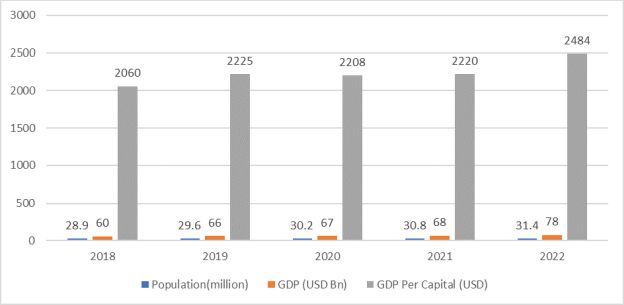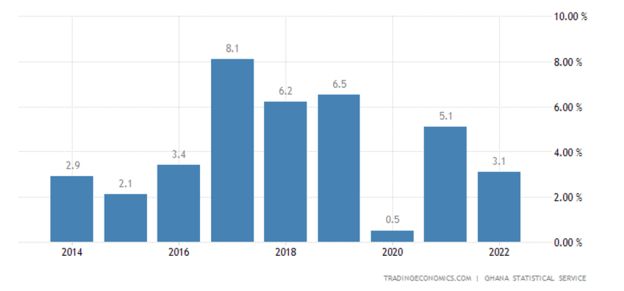Ghana is a great place to start a business. We will discuss some of the major benefits of starting a business in Ghana and why Ghana is a great place to do business among other African Countries.
What are the benefits of entrepreneurship in Ghana?
Investing in Africa is one of the best decisions any investor can make since there is potential to profit and grow. Ghana provides a stable and conducive business environment to break into the African business space. It is leading as one of the best destinations for doing business in Africa. There is great political stability and a friendly business environment in Ghana.
Why should you start your business in Ghana?
Below are some of the key reasons why Ghana is a great place for starting a business;
1. Political Stability
Over the past three decades, the country has experienced great political stability. Ghana has held and completed 5 successive elections peacefully under democratic constitutional rule. There have been no major incidents of political unrest. This has contributed to making Ghana the best place to do business in Africa.
Ghana is ranked as the most stable political environment within the West African sub-region and eighth in Africa, Ghana has established democratic institutions and systems to ensure good governance and the rule of law in the country – Africa Benchmark Country Report (ABCR, 2018)
According to Global Peace Index 2022, Ghana is ranked 1st in West Africa & 2nd in Africa in terms of political peace and stability.
2. Competitive and Business-friendly Environment
Ghana is one of the few African countries that provides a friendly and level playing ground for all businesses to compete among themselves and thrive. Public and private companies all have equal advantages to grow. This makes it easy for foreign investors to be able to invest in the country and grow without any restrictions.
In 2020, Ghana had the second-largest GDP in all of West Africa. There have been increasing efforts to diversify the economy into industries like minerals, automobiles digital technology products, and agriculture.
Ghana has identified the private sector as the catalyst for industrialization. In this light, Ghana embarked on the Structural Adjustment Programme.
The government also ensures that there are certain tax incentives that businesses enjoy for them to grow. These incentives can be enjoyed by businesses that operate in the areas of agriculture, tourism, mining, manufacturing, and export trade. Businesses that also predominantly use local raw materials and/or produce agricultural equipment are legible to enjoy these incentives.
According to the Rand Merchant Bank report on where to invest in Africa 2021, Ghana ranked sixth place for investment attractiveness in Africa.
3. Strong Economic Growth and Market Potential
Statista has indicated that Ghana is one of the leading economies in the African region. In 2021, Ghana was the eighth largest economy in terms of its GDP, which reached 73.36 billion U.S. dollars that year. The nation's GDP per capita was estimated at nearly 2.3 thousand U.S. dollars in 2022 and is expected to reach over 2.5 thousand U.S. dollars by 2025.
Ghana's rapid growth was between 2017 and 2019. This was a 7 percent increase per year and was halted by the COVID-19 pandemic, the March 2020 lockdown, and a sharp decline in commodity exports. In 2021, due to the dynamics of the agriculture and service sectors, there was a 5.4 percent economic growth with little contribution from the extraction sector. This is a good indicator that with the right tools and policies taken, Ghana has the potential for exponential growth to accommodate all types of businesses in the country; both local and international.
According to a report on Ghana's economic outlook by the African Development Bank Group. The banking sector remained strong in 2021 with a capital-adequacy ratio of 20.8% at the end of June 2021, nearly double the regulatory minimum of 11.5%. Poverty declined from 12% in 2020 to 11% in 2021, given GDP per capita growth of 2.3%, from a contraction of 1.7% in 2020. However, unemployment increased by 2.3 percentage points to 13.4% in 2015– 21.
GHANA ECONOMIC DATA (FocusEconomics.com)

GHANA'S GDP GROWTH SINCE 2018 (Ghana Statistical Service)

Ghana Economic Outlook 2023
The economic outlook for Ghana in 2023 is expected to be positive, although global economic uncertainty may continue to pose challenges.
Ghana's economy is projected to grow by 5.8% in 2023, up from an estimated 4.1% in 2022, according to the International Monetary Fund (IMF). The growth is expected to be driven by a rebound in the non-oil sector, particularly in the agriculture, manufacturing, and services sectors. The government has put in efforts in terms of policies and programs in efforts to attract foreign investment and diversify the economy away from reliance on the oil sector to more production and manufacturing driven.
Inflation is projected to remain in single digits, with the IMF forecasting an average inflation rate of 8.4% in 2023. The government's commitment to fiscal consolidation, including implementing measures to reduce the budget deficit and debt levels, is expected to help stabilize inflation.
The exchange rate is expected to remain relatively stable in 2023, although there may be some volatility due to global economic uncertainty and changes in commodity prices. The government's efforts to maintain a flexible exchange rate regime and increase foreign exchange reserves are expected to help mitigate risks to the exchange rate.
Overall, Ghana's economic outlook for 2023 is positive, with the potential for growth in the non-oil sector and efforts to attract foreign investment and diversify the economy expected to support economic expansion.
4. Entrepreneurial Ecosystem and Support Services in Ghana
The Ghanaian economy is structured to support new businesses to grow. Government agencies like the Ministry of Trade and Industry, Ghana Investment Promotions Centre, and other flagship programs are rolled out by various governments. All these are geared towards making Ghana the best place to start a business in Africa. There are also several trade associations and chambers in Ghana that have the direct interest of investors at heart. They put in place measures to help investors and members of their associations to start and run businesses in Ghana.
GIPC helps potential investors to acquire invitation letters and also helps prospective investors to acquire a visa to travel to Ghana. GIPC also assists investors to set up meetings with relevant government agencies and private sector associations upon request. These meetings go a long way to help investors familiarize themselves with the business climate in the country. They also help them find the right partners for their scope of business.
Private Sector Support Services
Several legal consultants are ready to hold the hands of potential investors through the process of incorporating their businesses in Ghana. This makes kickstarting a business in Ghana relatively easy for investors. They make sure that your business is compliant with all the regulatory compliances needed to fully operate in Ghana. They offer complete support services to ensure that new companies can survive the incorporation and setting up stage of their establishment in Ghana.
In Ghana, there are several chambers and trade associations in the various sectors of the economy. Examples of these chambers and associations include; the Ghana National Chamber of Commerce and Industry (GNCCI), Ghana Chamber of Mines, Ghana Chamber of Telecommunications, Association of Ghana Industries (AGI), Delegation of German Industry and Commerce in Ghana, and many others.
These associations and chambers are formed to bring together companies and professionals from various sectors of the Ghanaian economy and other parts of the world who want to develop their business in Ghana. Some of the benefits that these associations present to businesses include the following;
a. Advocate for government policies to the advantage of business owners.
b. They provide members of the associations with vast knowledge and ideas to grow.
c. Networking opportunities
d. Exhibitions
e. Business Seminars
f. Sponsored trips
g. Free report publications
To view the article in full click here.
The content of this article is intended to provide a general guide to the subject matter. Specialist advice should be sought about your specific circumstances.

